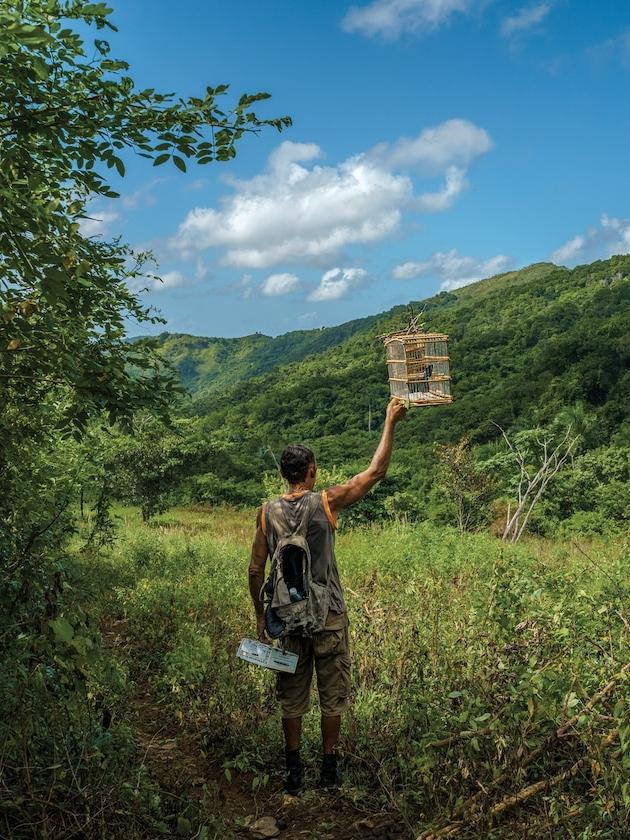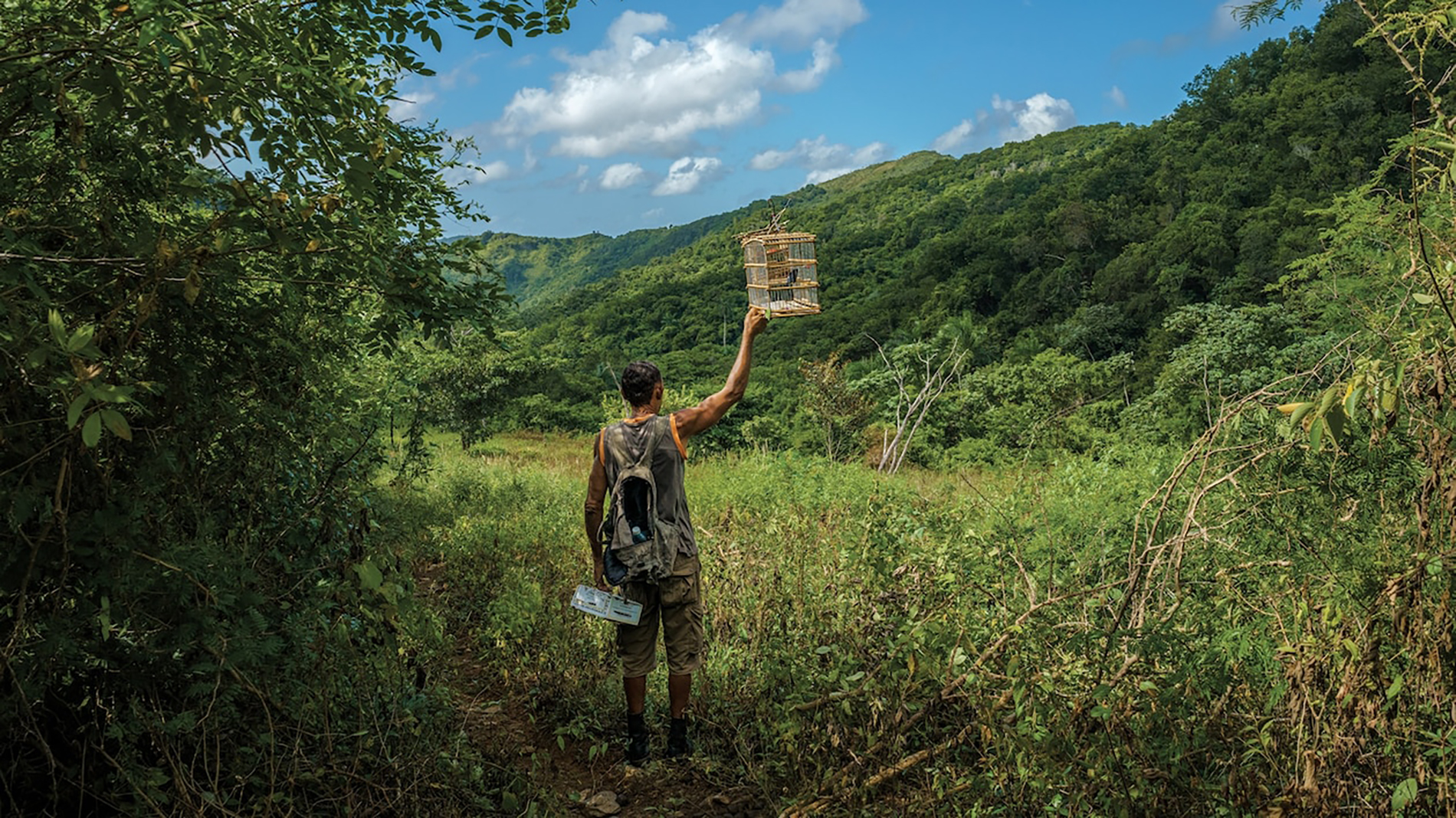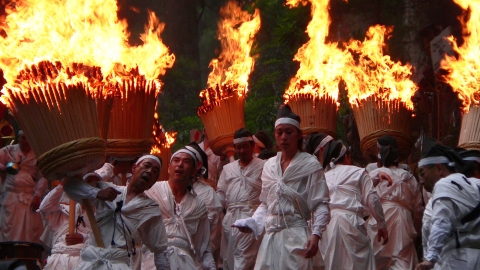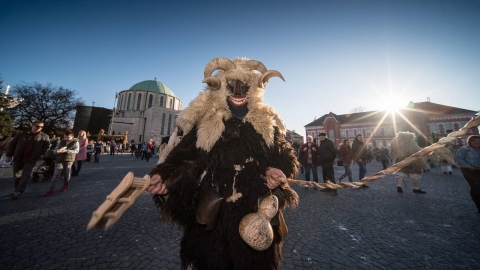The tradition has a history of over 500 years.
On Sunday morning, the men reappeared, carrying their champions in cages – grey bulbuls that had won the singing contest. Navigating through tall weeds and piles of rubbish blocking the narrow path, they gathered at a secluded spot in Havana. It was a September day, the season of bird migration in Cuba.
Recently, there has been a surge in demand for birds and bird racing in this country. The colorful ground sparrow, the green ground sparrow, the red-breasted great-billed warbler, and the songs they sing – all are highly sought after. Sundays are the time for the familiar bird-singing competitions.
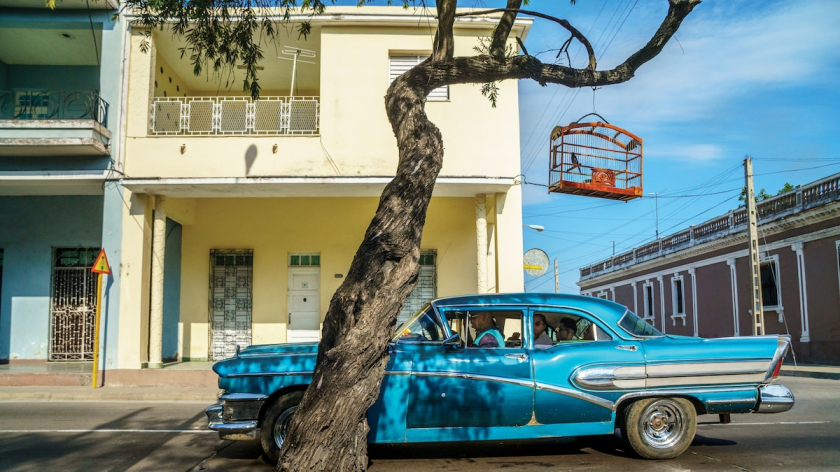
Bird cages hang on a road in Cuba.
According to biologist Giraldo Alayón García, former president of the Cuban Zoological Society, the hobby of "bird keeping" dates back to the Spanish rule of Cuba after Columbus discovered Havana Bay, meaning it is over 500 years old. Many Cubans want to keep colorful birds in their homes to enjoy their songs and beauty. This hobby has become increasingly popular and has been passed down from generation to generation.
Nowadays, the nature of bird-keeping in Cuba has changed; people trap birds and enter them in competitions for many reasons, not just simply out of a passion as before.
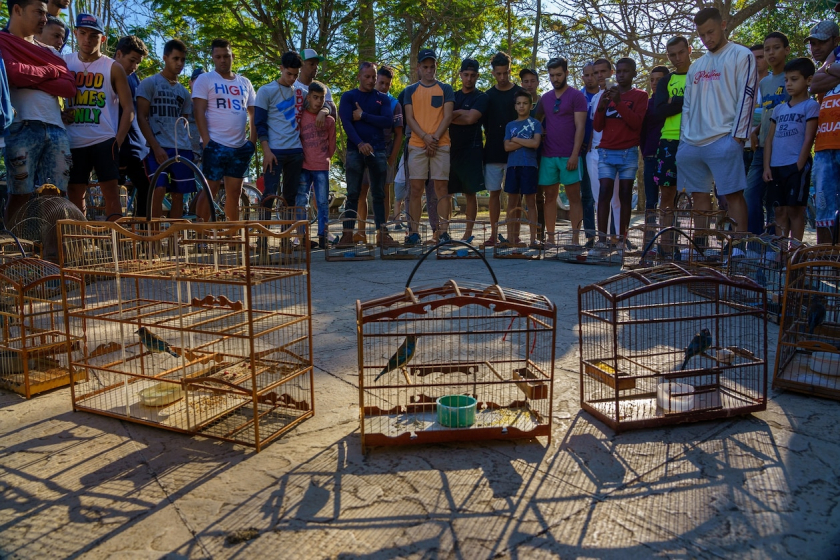
Special bird-singing competitions take place in the winter, when blue finches and other birds migrate to Cuba to mate. Men often gather on Sundays to participate in the competition, hoping that the judges will choose their bird as the best "singer."
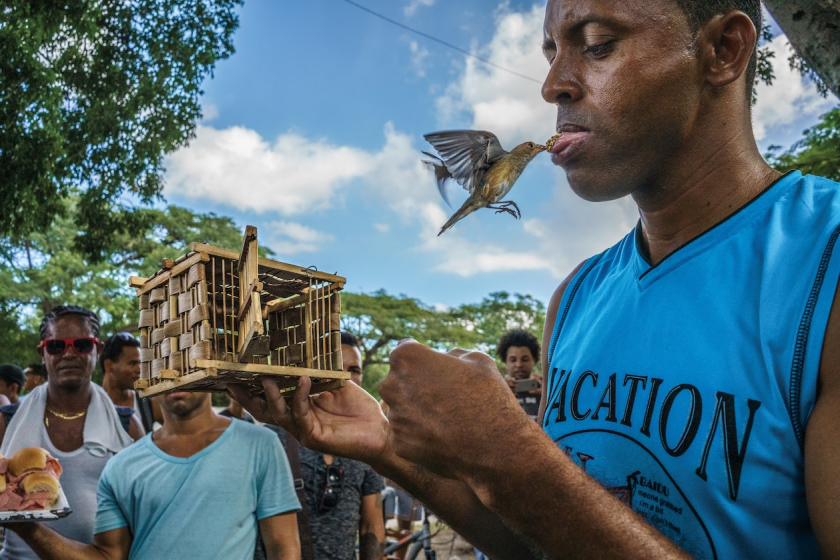
Before the Covid-19 pandemic, Cubans would often gather in Havana to trade, buy, and watch birds. Bird keepers would perform tricks, placing food pellets on their tongues so their birds would fly to eat them.
For some Cubans, trading songbirds is a business to make a living. Food shortages and the economic impact of the U.S. embargo have made cash scarce. Besides, illegally trapping wild birds is much cheaper and easier than keeping them as pets.
Lillian Guerra, Professor of Cuban and Caribbean History at the University of Florida, said, "The money earned from trading songbirds is quite limited. On Facebook, there are birds advertised for sale for no more than $20. But betting on songbird competitions is the opposite – the stakes can reach thousands of dollars."
There are also Cubans who mourn their birds when they die. But often, when training birds for singing competitions, the birds are subjected to strenuous and exhausting training, for example, they are forced to memorize songs that are played repeatedly. Young bird-singing competitors even administer steroids to the birds to "boost their performance"; or use hot spoons to burn the birds' eyes, hoping that if they cannot see their opponent, the birds will continue to sing incessantly.
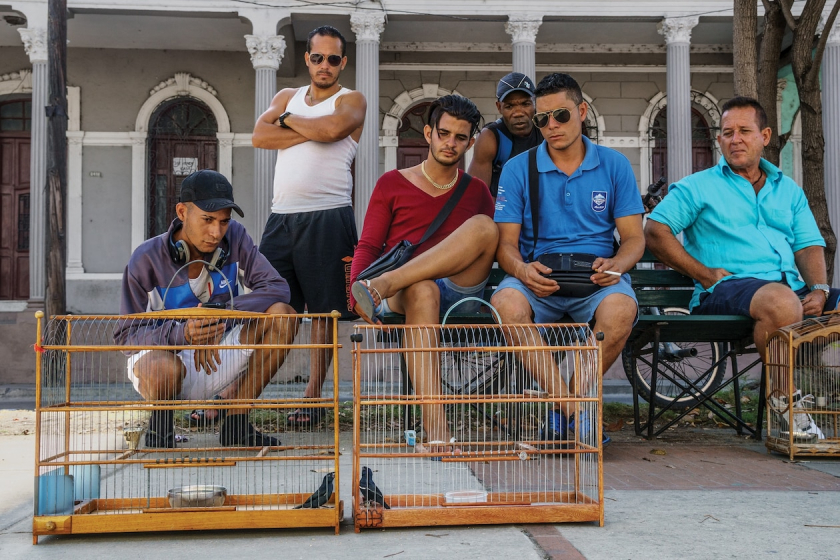
The men in the park in Cienfuegos sat listening to two birds sing. Some bird-singing competitions are simply a display of pride and socializing; others involve illegal gambling for profit.
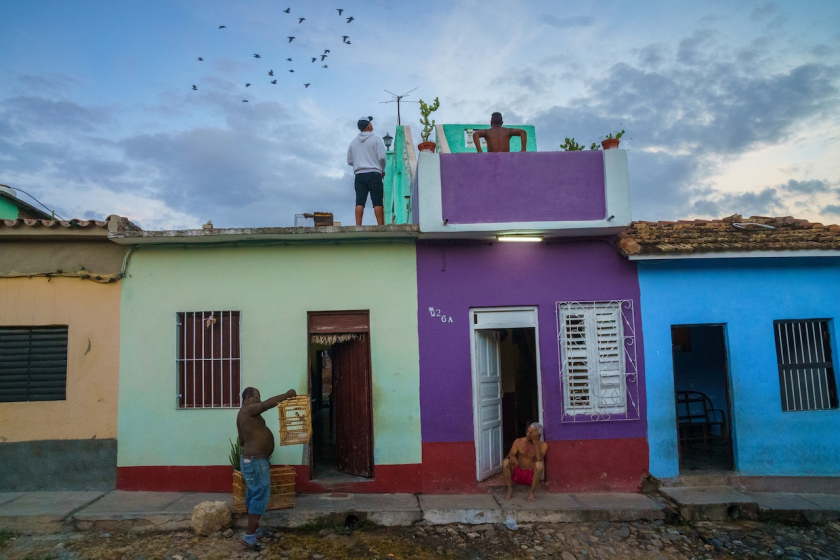
Besides raising songbirds, some Cubans also participate in cockfighting and pigeon racing. On an evening in the town of Trinidad, one can see many people standing on rooftops waiting for their pigeons to fly home.
From cultural traditions to illegal behavior
The increasing demand for bird-singing competitions has led to a surge in illegal trapping and trafficking of wild birds. Keeping wild birds is a long-standing tradition among the local people, but ironically, it is also illegal in Cuba.
In 2011, Cuba enacted a law on biodiversity conservation that prohibits the keeping of many songbird species in captivity for any purpose other than scientific research. Holding competitions to bet on which bird can sing the longest, most melodious tune is also prohibited.
However, Xochitl Ayón Güemes, an ornithologist and curator of birds at the National Museum of Natural History of Cuba, said that pandemic lockdowns have fueled the illegal online commercialization of wild birds. People are still openly posting photos and videos from these competitions; and Facebook is still flooded with posts advertising birds for sale, even clearly noting which birds were caught in the wild.
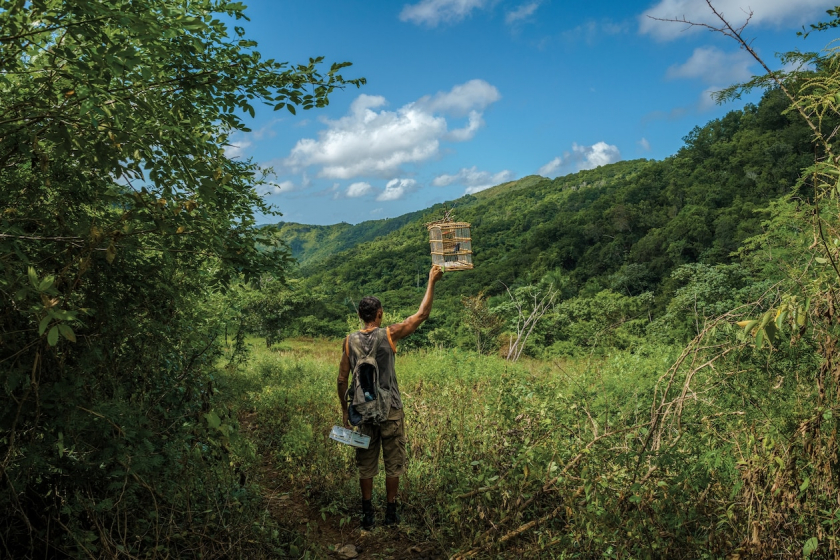
The bird trapper is holding up a cage containing a male bullfrog to attract other bullfrogs of the same species.
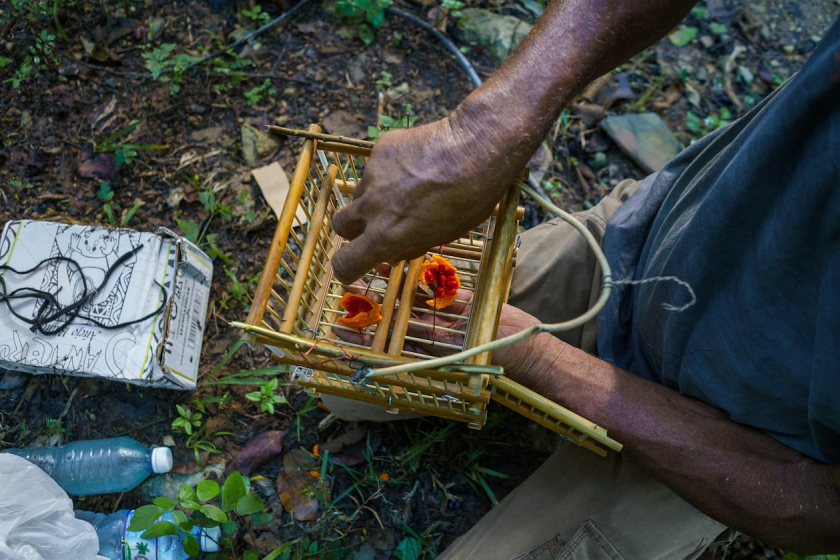
If any bird is attracted to the trap, it will seek out and eat the bait and get caught.
According to studies, flocks of migratory birds that travel long distances to their wintering grounds in Cuba are 20% less likely to return than those that migrate shorter distances. Long flights are partly to blame, but trapping also contributes to this rate.
Alayón, a 75-year-old man, lamented: "Nowadays, in some places you can't even find a single grassquit anymore, even though there were so many of them in Cuba when I was a child."
"People want to be close to nature, and trapping songbirds is very common in Cuban culture," said Alayón. "The most difficult thing is how to change people's mindset."
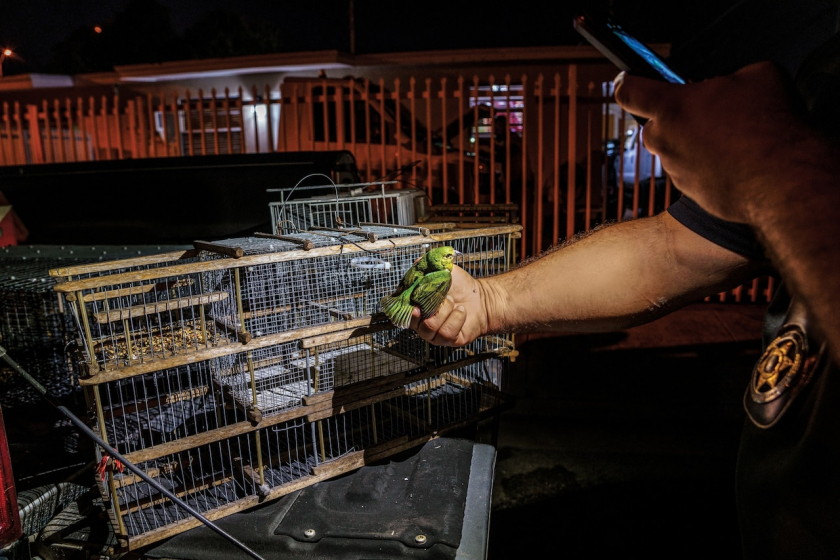
A spotted ground sparrow was confiscated by wildlife conservationists from bird trappers.
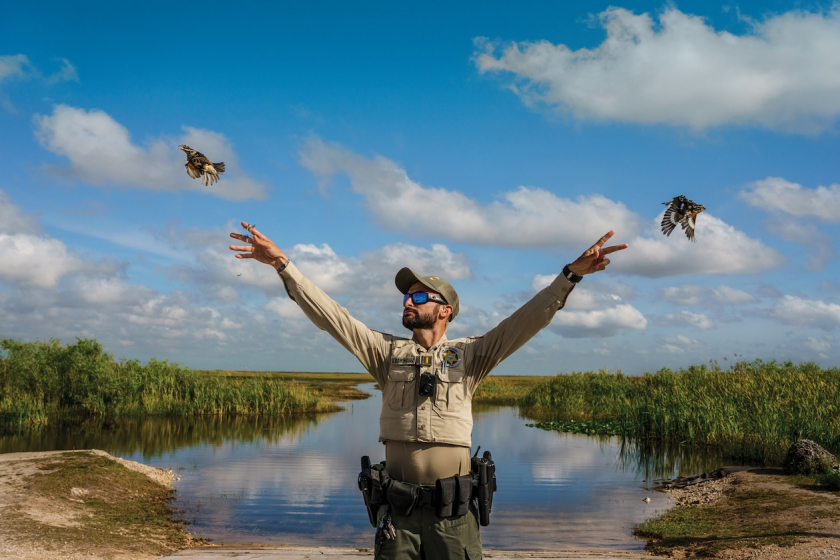

 VI
VI EN
EN



